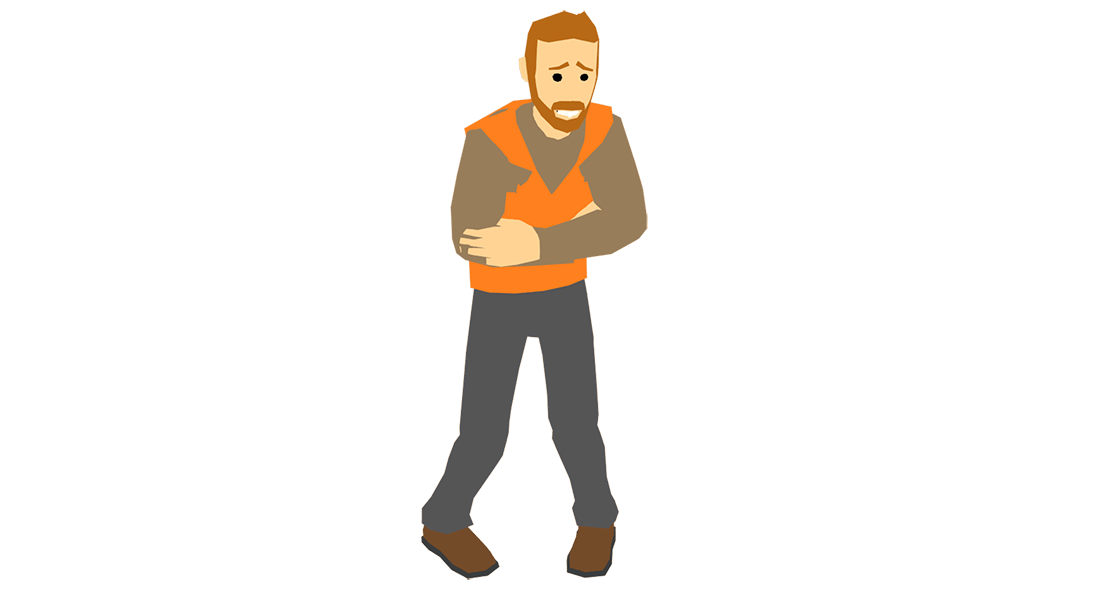Hypothermia and Frostbite while hunting Prevention - Symptoms - Treatment
Hypothermia
A condition which all people active in the outdoors should know about is exposure or hypothermia. It occurs when body heat is lost faster than it can be produced. Core body temperature gradually drops until a dangerous and life-threatening situation develops. With a little care, hypothermia can easily be prevented.
Most cases of hypothermia occur when the temperature is above freezing. A combination of wet, windy weather and fatigue can prove to be fatal! You are more likely to die of hypothermia when you are lost, than anything else.

Prevention of hypothermia
- Dress properly. Wear several light, warm layers of clothing instead of one heavy garment. This way you can remove or add clothing as you become warm or cool. When weather is cool and windy, wear something on your head and an outer garment which breaks the wind. Stay dry and avoid becoming chilled. If you become wet, stop, make a fire and dry out. Damp clothes will draw heat out of your body many times faster than air. Wind makes the situation even worse. Moisture and wind are a bad combination.
- Carry high-calorie food such as chocolate, peanuts or raisins for quick energy. In cold weather your body is a machine that requires fuel to keep running. Proper nutrition is very important in the outdoors, especially when you exert yourself in pursuit of game.
- Never eat much snow or ice to quench your thirst. Heat is required to melt them and could lower your body temperature.
Symptoms of hypothermia
Despite the best planning and preparation, you may encounter hypothermia. These are the symptoms:
- Uncontrollable shivering: The body tries to create heat by muscle vibration
- Slurred speech
- Poor muscle coordination. The victim may appear "drunk"
- Slow and erratic pace
- Drowsiness
- Memory lapse
- Irrational thinking and judgment. (A person may want to lie down in the snow and sleep.)
- Unconsciousness which can lead to death - requires immediate attention!
- Euphoria or a sense of well being
Treatment of hypothermia
Should you experience the early symptoms of hypothermia, take action.
- Minimize heat loss by covering your head, neck and chest area and get to some shelter
- Get out of the wind and keep dry
- If you are a long way from your camp or vehicle, stop and build a fire
- Eat something and continue on your way once you are warm and rested
If you happen across someone who has the symptoms of hypothermia:
- Insist that he or she accept treatment
- Get the person to a warm shelter
- Change their wet clothes for warm dry ones
- Warm the chilled person by wrapping with warm blankets or huddling against other people
- If the victim is still conscious, offer hot fluids or soup
- Once a person's condition has stabilized, he/she should be taken for a medical examination
Frosbite
Frostbite is a painful condition but not usually life threatening.
Prevention Of Frostbite:
- Stay indoors during severely cold weather especially if accompanied by wind
- Dress warmly, paying particular attention to the face, head, arms and legs
- Avoid getting damp or wet either from perspiration or other sources such as rain or snow
Symptoms Of Frostbite
- Skin color turns off-white
- There is a tingling or prickly feeling in the skin as ice crystals form
- If severe, there may be a loss of feeling in the affected area
Treatment Of Frostbite
Should you experience the early symptoms of hypothermia, take action.
- Minimize heat loss by covering your head, neck and chest area and get to some shelter
- Get out of the wind and keep dry
- If you are a long way from your camp or vehicle, stop and build a fire
- Eat something and continue on your way once you are warm and rested